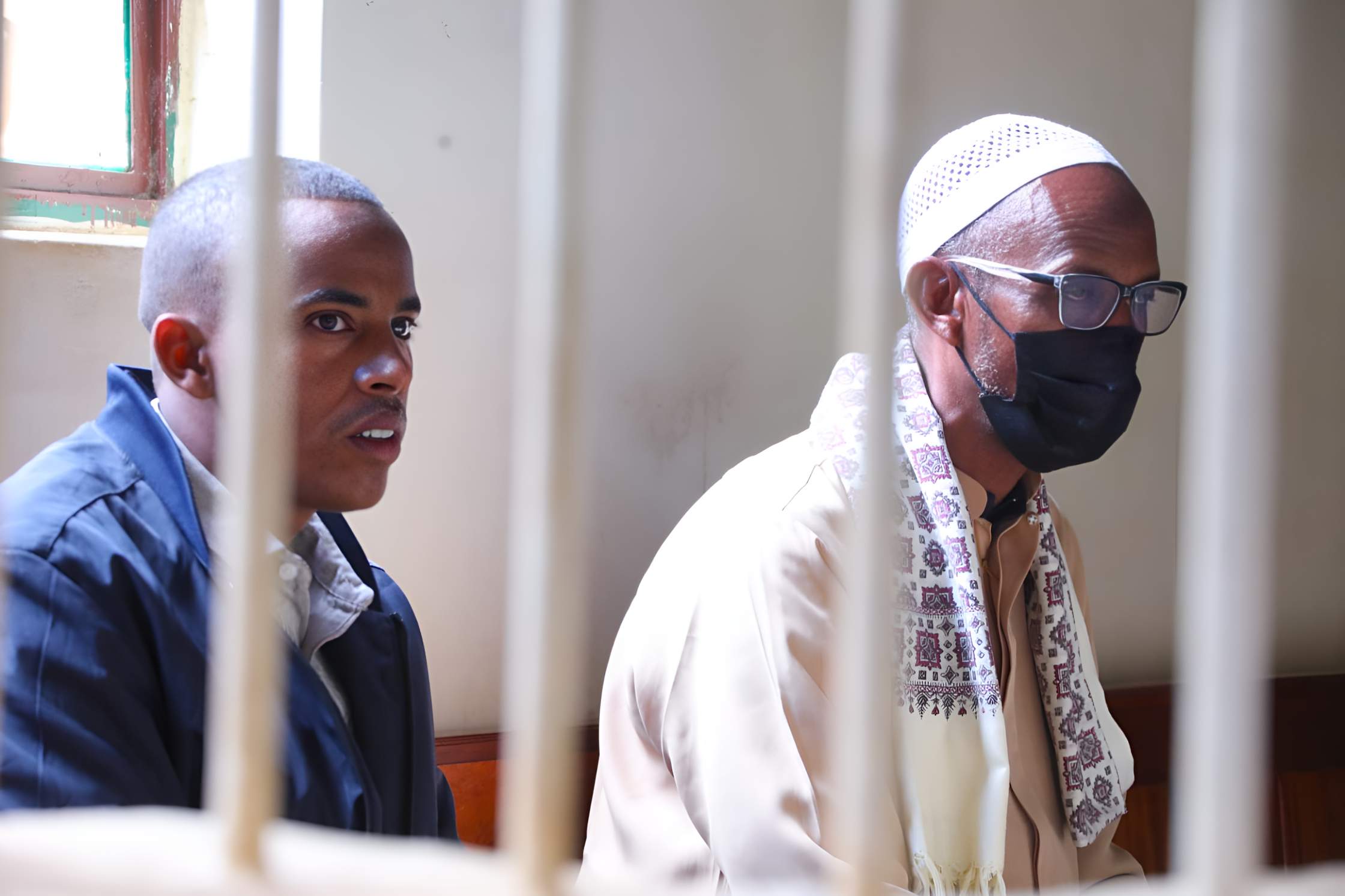Two Al-Shabaab militants convicted over Dusit terror attack

The prosecution’s case was strengthened by evidence from the US Federal Bureau of Investigation (FBI), which tracked multiple Facebook accounts used to coordinate the DusitD2 attack.
Two terrorists responsible for the deadly DusitD2 attack that claimed 21 lives have been convicted.
Hussein Mohamed Abdille Ali and Mohamed Abdi Ali were found guilty on Thursday of 21 charges related to financing and facilitating the January 15, 2019, terror attack in Nairobi.
In 2023, Mirie Abdullahi pleaded guilty to providing internet services that allowed the attackers to communicate with Jilib, the Al Shabaab stronghold.
However, Abdille and Abdi continued to contest the charges brought against them by the Director of Public Prosecution, disputing their involvement in enabling the assault.
The prosecution revealed that the attackers, led by Ali Salim Gichunge, exploited security weaknesses and used forged documents to carry out their attack.
The convictions of Abdille and Abdi underscore the vital role facilitators play in terrorism, providing everything from funding to logistical support.
In her ruling, Justice Diana Mochache outlined the specific involvement of the two men, noting that Abdi was found guilty of transferring Sh558,200 to Gichunge, which helped finance key elements of the attack, such as travel, lodging, and purchase of materials.
Abdille was convicted for obtaining forged identification documents, including school IDs and a birth certificate, which enabled the attackers to travel freely across Kenya without drawing attention.
Justice Mochache emphasized in her ruling, "It is my view that the accused persons committed a terrorist act through the offence of facilitation. The first accused (Abdille) facilitated the attack by procuring fake documents to allow the attackers to move without being identified."
The prosecution’s case was strengthened by evidence from the US Federal Bureau of Investigation (FBI), which tracked multiple Facebook accounts used to coordinate the DusitD2 attack.
These accounts, operating under aliases like "Kim Sam," "Abdul Hakim," “Kezia Soze," "Mohamed Yare Abdalla," and "Soze Kezia," were tied to the creation and distribution of fake documents.
One account, created just a day before the attack on January 14, 2019, was used to stream live videos, helping spread the terrorists’ propaganda.
Another account, linked to an individual named Adam Chege in Jilib, had been active since April 4, 2018, and was connected to a thwarted plan to attack the KICC, where Victor Odede was previously convicted.
The FBI’s investigation uncovered that Abdille shared samples of forged IDs, including one bearing his own likeness, directly linking him to the attack’s planning.
Justice Mochache highlighted this in her ruling, stating, "The FBI testified on how they tracked certain Facebook accounts centered on the publication of fake school ID cards. This shows he was actively involved with the planning of the attack."
The judge ruled that the defence’s arguments failed to undermine the prosecution’s forensic evidence, witness testimonies, and extensive case materials.
CCTV footage captured a grim timeline of the attack, showing that at around 3:36 pm on January 15, 2019, most people at the DusitD2 complex narrowly escaped harm during a critical five-minute gap before the attackers entered at 3:41 pm and launched their assault.
The government responded swiftly by sealing off suspected escape routes and deploying a special forces team to neutralize the attackers.
This prompt action saved many lives, but the complexity of the assault highlighted the urgent need for a comprehensive investigation into those who facilitated the terror plot.
After the attack, detectives launched a thorough investigation to dismantle the network behind the operation.
Abdille was arrested in Mandera on January 31, 2019, while Abdi was taken into custody on April 23, 2019.
The probe uncovered crucial evidence, including 177 SIM cards seized in Muchatha, Kiambu County, and a Nokia 1030 phone registered to Gichunge.
Chief Inspector Joseph Kolum, a lead investigator, testified that the device was used solely for M-Pesa transactions under various aliases, including Eric Kinyanjui Munyi, Eric Kinyanjui, and Farouk.
Another phone recovered from a vehicle used by the attackers, a Nokia 1010 with no SIM card, still held a balance of Sh59,700—funds Gichunge had transferred to himself.
The investigation revealed that Gichunge registered for M-Pesa using a stolen ID belonging to Dr. Eric Kinyanjui to communicate with his accomplice, Violet Kemunto.
Kemunto, last traced in Mandera before reportedly fleeing to Somalia, was romantically linked to Gichunge and played a key role in coordinating logistics for the attack.
The attackers traveled to Nairobi via a carefully mapped route from Somalia through Garissa, Elwak, Moyale, and Isiolo. Financial trails connected the Dusit attack to a foiled bombing attempt in Merti, where a vehicle rigged with explosives was intercepted.
Investigators noted that terrorists frequently scout multiple targets before choosing one with the weakest security.
The prosecution presented 156 witness statements, relying on 45 key testimonies to build their case.
These convictions mark a crucial victory in the fight against terrorism. Sentencing is scheduled for June 17, when the court will determine the punishments for the convicted men.
